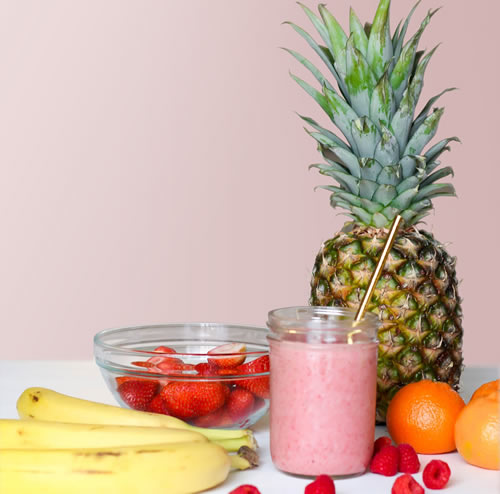Approaches
A balanced diet is a good way to improve health.
A balanced diet provides the body sufficient nutrients to maintain health. It should mainly involve fresh fruits and vegetables, nuts, legumes, lean protein, whole grains and water.
The calories in the food we eat provide energy for our bodies in the form of calories. The number of calories needed each day depends on our age, weight, gender and activity level. We must consume calories from the aforementioned healthy food sources to stay healthy. The U.S. Department of Agriculture (USDA) defines empty calories as foods prepared with sugar or solid fats, such as butter or cheese. For example, energy drinks, ice cream, pizza, etc.
The basic nutrients your body needs include:
Carbohydrates provide the energy your body needs to perform each activity every day. Food: rice, wheat, corn, potatoes, etc.
Protein builds your body and causes growth. Protein is needed by all the cells in the body. It is also necessary for them to provide exemptions. Food: eggs, fish, meat, etc.
Healthy fats are essential for good health. It absorbs vitamins (A, D, E, and K) by causing muscle movement, blood clotting, cell formation, and avoild the attack of various diseases. Food: vegetable oil, fish, seeds, etc.
Vitamins and minerals are needed by the body in small amounts and are therefore called micronutrients. They are necessary for the overall health of your body. Food: Fresh fruits and vegetables
They are plant-based carbohydrates. Generally they are not digested by your intestines and can improve your digestive function health and prevent constipation. Foods: Most fresh fruits, green leafy vegetables, nuts, etc.
About 65 percent of the adult body is composed of water. Water is essential to flush out toxins, nourish your body, transfer the nutrients into your cells etc. The amount of water your body needs each day depends on your age, weight, gender, etc. The average adult needs at least two litres of water a day.
Daily consumption of food
Eating a variety of foods every day is necessary for a balanced diet. Involve these foods in your diet:
Eat starches made including whole grains such as whole wheat pasta and brown rice. Starchy foods provide carbohydrates, fiber, vitamins and minerals.
-
Fresh fruits and vegetables
Consume five different servings of fruits and vegetables a day to stay healthy and prevent a variety of diseases, including cancer and heart disease. This can be divided into 2 portions of vegetables, 2 portions of fruit and 1 portion of dried fruit. They provide vitamins, minerals and dietary fiber.
Choose low-fat milk and avoid adding sugar to milk and dairy products. Dairy products include cheese, butter, yogurt, butter milk, etc. They are high in protein, fat, vitamins and minerals.
These include eggs, fish, meat, beans, beans and so on. Meat is a good source of zinc, iron and B vitamins. Minimize red meat consumption as it increases the risk of heart disease.
Fish, on the other hand, is rich in omega-3 fatty acids, which are vital for a healthy nervous system, eyes and heart, as well as preventing a variety of diseases.
Eat nuts, fish oils and vegetable oils. Avoid foods high in cholesterol, including processed foods, fast food, shellfish, fried foods, etc.

